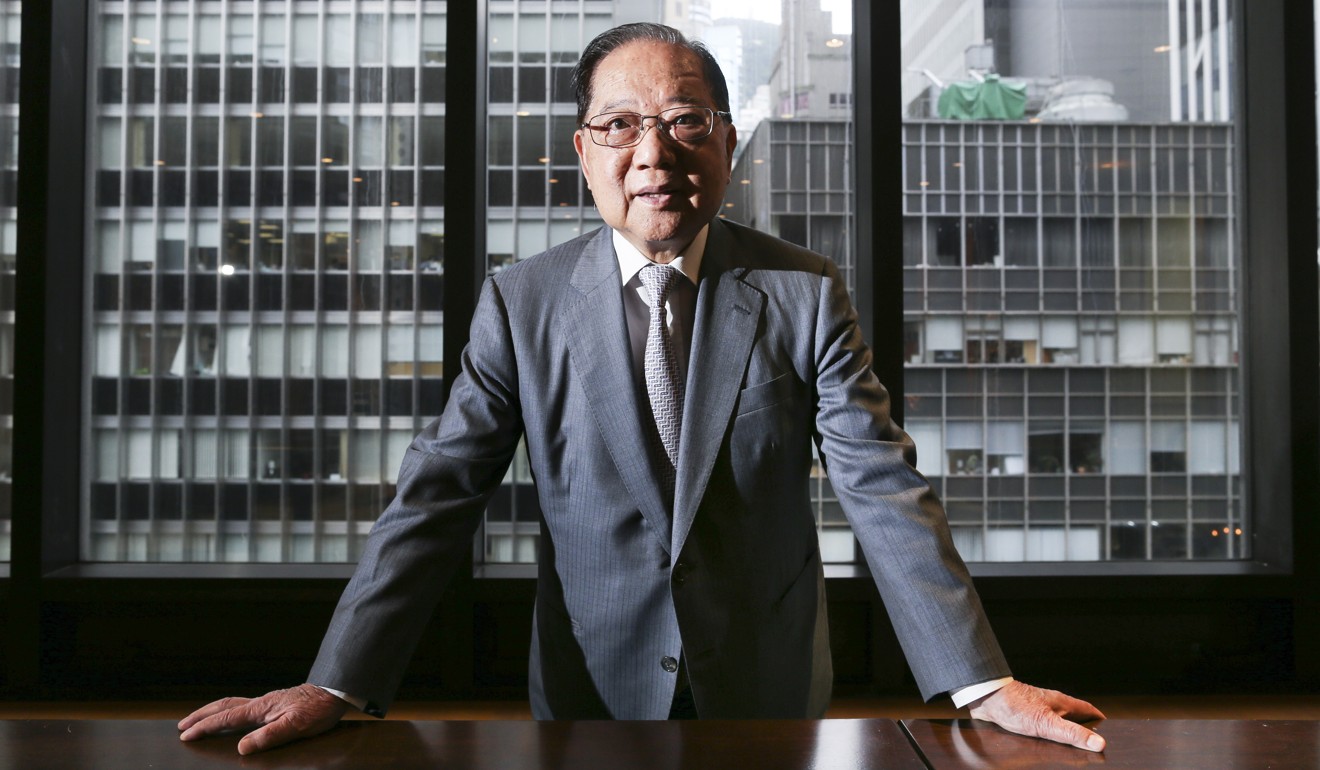
More land supply means more unsold flats, Hong Kong developers’ group says while denying homes are being hoarded
Real Estate Developers Association’s Stewart Leung says there is ‘no waiting for better times to sell’ in the industry

Hong Kong’s property developers have denied hoarding flats, saying that the reason there are more unsold newly built homes in the city, which is suffering an acute housing shortage, is because of an earlier increase of land supply.
According to the government – which is set to unveil details of a vacancy tax on property owners hoarding new flats this month in a bid to ease the housing crisis – some 9,000 completed but unsold homes are held by developers.
Hong Kong is consistently ranked the world’s least affordable property market, and the government is in the process of a public consultation on sourcing more land to plug a predicted shortage of 1,200 hectares for the city’s housing and economic development in the next three decades.

Stewart Leung Chi-kin, chairman of the Real Estate Developers Association’s executive committee, said the increase in the number of completed but unsold flats from 4,000 in 2012 was due to the previous government selling more land.
“When the supply increases, it is natural that the leftovers will increase,” Leung said on the TVB programme On the Record on Sunday.
“Many of the 9,000 flats were only completed last year and are still in the sales process.”
Leung added that despite the increase in land supply, some developers were still worried that they might not be able to buy new sites, so they tended not to sell all of what they had built.
“There is no waiting for better times to sell in our industry,” he said. “Most developers want to keep building and selling.”
If the government insisted on introducing the tax, Leung said, it should exempt flats of more than 1,000 sq ft because the luxury sector operated differently and sales happened more slowly.
He added that developers which had been continuously selling flats should also be exempted because they had been “trying their best” to sell.
It is not unusual for developers to continuously release a few flats in a project at a time and selling all the units can take a long time. Hang Lung Properties, for example, built The Long Beach in Tai Kok Tsui in 2005 but still has not sold all of the flats.
Leung said developers should not be forced to sell all the flats in a project at once, so as not to “flood the market”.
In a statement last week, the association, which represents the major developers, said the government’s estimation of 9,000 unsold flats was “misleading” because the figure included units used by the companies for rental purposes or serviced apartments, as well as those with an occupation permit but still awaiting a certificate of compliance.
The government requires developers to complete projects – which means to obtain an occupation permit – in a specified period, usually four to six years. The permit is normally issued before developers complete peripheral works such as greening, building footbridges and furnishing open spaces.
Flat owners can move in with the permit, but developers have to finish all the related works to get a certificate of compliance. There is no deadline for developers to get this certificate.
The association urged the government to define vacant flats as those with the certificate but not yet sold, rather than with the occupation permit.
Under this definition, the association said, the number of vacant flats would fall to just 3,000, a figure which did not justify imposition of the new tax.
But some are concerned that this will enable developers to slow down the process of getting the certificate, leading to de facto hoarding.
On the TVB programme, Leung denied this would happen, saying it usually took up to a year for developers to get the certificate, and flat buyers could cancel their contracts if the firms did not get the permit within a promised period.
Developers can start selling even when projects are not yet completed, as long as they gain the government’s presale consent. As of March 31, there were some 23,000 flats under construction with presale consent, of which 6,000 had not yet been sold. It remains uncertain whether this batch would be affected by the vacancy tax.